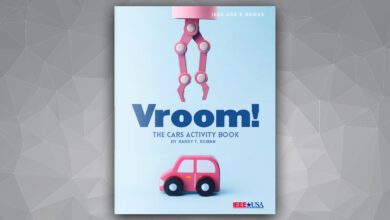
When preparing for a job interview, your primary focus will be on how to answer the typical questions about skills and how your experience aligns with the job description, your career goals, and any employment gaps in your resume. If all you do in an employment interview is answer these questions, however, then you have missed a real opportunity to make a positive impression and to obtain the information you’ll need to assess a job offer.
Many interviewers welcome a two-way conversation. Those who prefer a more conventional Q&A approach will leave time at the end of the interview for your questions. Either way, your questions help the employer understand your needs and expectations and inform their assessment of how well you will fit. Asking questions tells the interviewer that you are thoughtful and serious about the job, traits that most employers will value. The key is to ask questions that have purpose and whose answers will inform your decision if you receive an employment offer.
When applying for a job, there are some basic things you will want to know about the position and your prospective employer, other than hours, pay and benefits.
1. Job Responsibilities/Expectations. You want to leave the interview with a clear picture of the daily tasks and responsibilities associated with the position. A good straight forward question you can ask is “What would a typical workday (or work week) look like?”
2. Company Culture and Values: Are the company’s values and management philosophies compatible with your own? Will the work environment be a good fit? One simple question you could ask is “”How would you describe the company culture and values?” If the company has published a statement about its workplace values on its website, you can ask questions about specific elements of that statement and how they look in practice.
3. Team Dynamics and Collaboration: You will want to know about the people you’ll be working with. Many companies reinforce this by having you interview with members of the team. Having knowledge of the people you will be working with and understanding the teamwork processes and tools used by the company is useful. Some questions you can ask include:
-
-
- “Can you tell me about the team I’ll be working with?
- How does the company foster teamwork and collaboration.
- “What tools and methods do you use to facilitate communication among team members?”
-
4. Career Advancement: If you are looking to build a career and not just draw a paycheck, then you’ll want to assess the company’s policies and practices regarding training and employee development. You can start by looking at comments posted by insiders on websites like Glassdoor. In the interview, you can also ask questions like:
-
-
- “What programs or opportunities does the company provide for career growth and advancement?”
- “What type of training or learning opportunities are available?
- “Will time and support be provided for training and professional development?”
- “Do you support professional society membership for professional development?
- What would I need to do to qualify for promotion and is there a normal timeline or process for considering promotions?
-
5. Work-Life Balance and Benefits: Benefits are an important consideration when assessing a job opportunity and you should carefully review them before accepting an offer. Vacation, sick leave, health care, pension/savings, insurance, and other benefits can be just as important as salary when weighing an opportunity. A good straight-forward question you can ask is: “Can you provide information about the benefits package offered by the company?”
For job applicants, questions about work-life balance can be tricky, because some interviewers could interpret them as a lack of interest and commitment to the work. Most employers like to think they support work-life balance, but in reality, the work always comes first. If work-life balance is a high priority for you, then a relatively safe question you can ask is “What is the company’s approach to work-life balance?”
You can ask other probing questions, but knowing when and how deeply to probe can be a challenge. Some interviewers will not like having the tables turned and becoming the “interviewee.” They may have a lengthy list of questions of their own to get through and limited time to “check all the boxes.” So, you should be prepared to “read the room” and avoid asking too many questions if you feel like it may turn off the interviewer(s). Knowing what information is critical to your decision is essential, and how much to ask and how deep to probe is a skill that you can develop with practice. When to ask your questions is also a consideration, you may be in a better position to ask more detailed or probing questions if you are invited back for a second or third interview.
With that cautionary note, here are some reasons why asking probing questions can be advantageous:
-
- Demonstrating Interest and Engagement: Probing questions show that you are genuinely interested in the job and in the organization. They can be used to make a positive impression by displaying your enthusiasm and engagement in the conversation.
- Obtaining Detailed Information: Probing questions can help you dig beyond the surface-level details of the job posting to gain a deeper understanding of what the work will really entail, and the skills required for success.
- Clarifying Ambiguities: Sometimes, job descriptions or initial explanations may leave certain aspects unclear. Probing questions can provide clarification, ensuring that you have a clear understanding of the role, responsibilities, and expectations.
- Assessing Fit: Probing questions often prompt frank and revealing responses that will give you insights into the company culture, team dynamics, and work environment. This information will help you assess if the organization aligns with your values, goals, and preferred work style.
- Showcasing Critical Thinking Skills: Questions about your job function can demonstrate your ability to think critically and highlight your problem-solving mindset. While you do not want to get lost in minutiae, your questions can signal that you are detail oriented and analytical in nature.
- Building Rapport and Connection: Engaging in a meaningful two-way dialog can help build rapport with the interviewer and shows that you are actively listening, thinking, and engaging with the discussion, fostering a positive connection.
In conclusion, do your research and prepare a short list of questions you think are important to you in assessing the job opportunity. Make sure to prioritize your list and to “read the room.” Do not ask questions, just to ask questions. Avoid dominating the conversation or frame questions that are confrontational in tone or nature. Be respectful, attentive, and tactful in your approach, ensuring that your questions are relevant, thoughtful, and concise. Done properly, you will make a strong impression with the interviewer and leave the interview with the information you need to make an informed decision.






